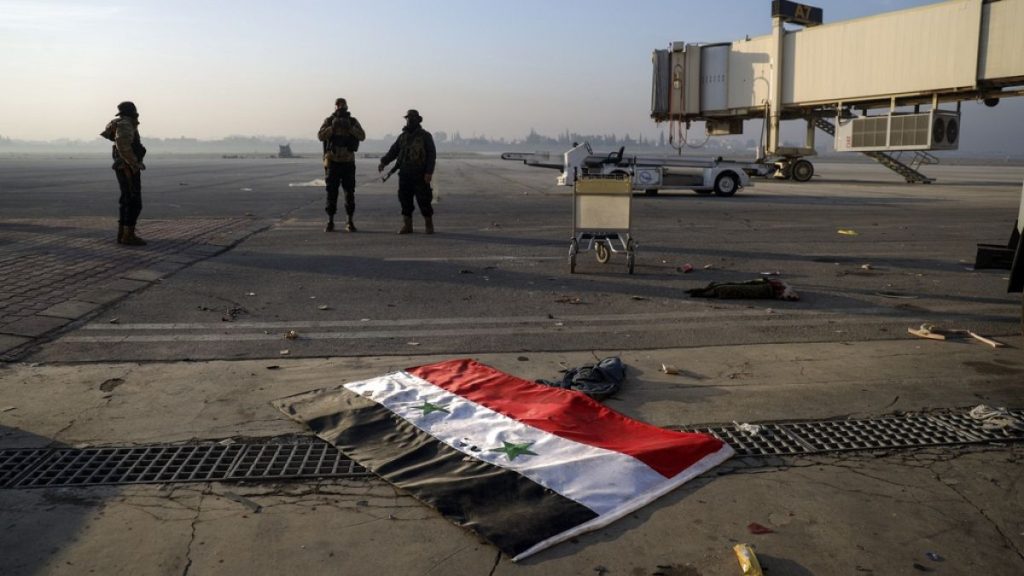The fall of the al-Assad regime in Syria, after a swift rebel offensive, ushered in a new era marked by both challenges and opportunities. The immediate aftermath witnessed scenes of destruction and looting, particularly at Damascus International Airport, a vital hub for international travel and commerce. Cleaning crews worked diligently to remove debris, broken furniture, shattered glass, and accumulated trash left behind by looters, aiming to restore the airport to functionality. This effort was driven by the new administration’s recognition of the airport’s significance as a gateway for international delegations, missions, and trade, and its crucial role in revitalizing the nation’s economy and reconnecting it with the global community. Restoring the airport was seen as a key step towards encouraging international airlines to resume flights, thereby re-establishing vital links to the outside world and projecting an image of stability to the international community.
Beyond the airport, signs of recovery began to emerge in Damascus, the nation’s capital. Markets, symbolic of daily life and economic activity, gradually reopened, with shop owners and customers returning to the bustling atmosphere. The Bzouriyeh market, famous for its vibrant array of spices and grains, provided a poignant example of this resurgence. Long-time traders like Bakri Bakdash, who had witnessed decades of change and turmoil, expressed a sense of relief and optimism, observing a palpable shift in the mood of the people. The reopening of banks and government institutions further signaled a return to normalcy and the resumption of essential services. Public squares, once sites of protest and conflict, became spaces for celebration, reflecting the hope for a brighter future.
The transitional government, led by Mohammed Al-Bashir, faced the daunting task of rebuilding a nation shattered by years of conflict. A priority was to address the humanitarian crisis, including the displacement of millions of Syrians. Al-Bashir issued a call to those who had fled the country to return, promising a new era of stability and opportunity. This appeal recognized the importance of reintegrating refugees and displaced persons into society, not only for humanitarian reasons but also for the nation’s economic and social recovery. The return of displaced Syrians would contribute to rebuilding communities, revitalizing the workforce, and fostering a sense of national unity.
However, the legacy of the Assad regime’s repressive tactics remained a significant challenge. An estimated 150,000 individuals had been detained or disappeared during the years of conflict, highlighting the widespread human rights abuses and the climate of fear that had permeated society. The new administration faced the difficult task of addressing these past injustices, accounting for the missing, and ensuring that such abuses would not be repeated. This process of reconciliation and accountability was essential for building trust and establishing a just and democratic society.
The takeover of Damascus International Airport by Hayat Tahrir al-Sham, the rebel faction instrumental in Assad’s downfall, marked a significant shift in power. Omar al-Shami, a security official with the group, emphasized the airport’s strategic importance, describing it as the “heart of the city” and a vital lifeline for Syria. Securing the airport was not merely a logistical necessity but also a symbolic act, demonstrating the rebel alliance’s control over the capital and its commitment to restoring order and stability. This move signaled a new phase in Syria’s transition, with the rebel alliance assuming responsibility for key infrastructure and national security.
The fall of the Assad regime presented a complex and multifaceted challenge for the new administration. While the initial signs of recovery in Damascus offered a glimmer of hope, the long road to rebuilding a nation scarred by conflict and repression lay ahead. Addressing the humanitarian crisis, restoring essential services, promoting economic recovery, and ensuring accountability for past abuses were just some of the critical tasks facing the transitional government. The success of this transition would depend not only on the new leadership’s ability to govern effectively but also on the support of the international community and the resilience of the Syrian people. The world watched with anticipation as Syria embarked on this uncertain journey towards a new future.














